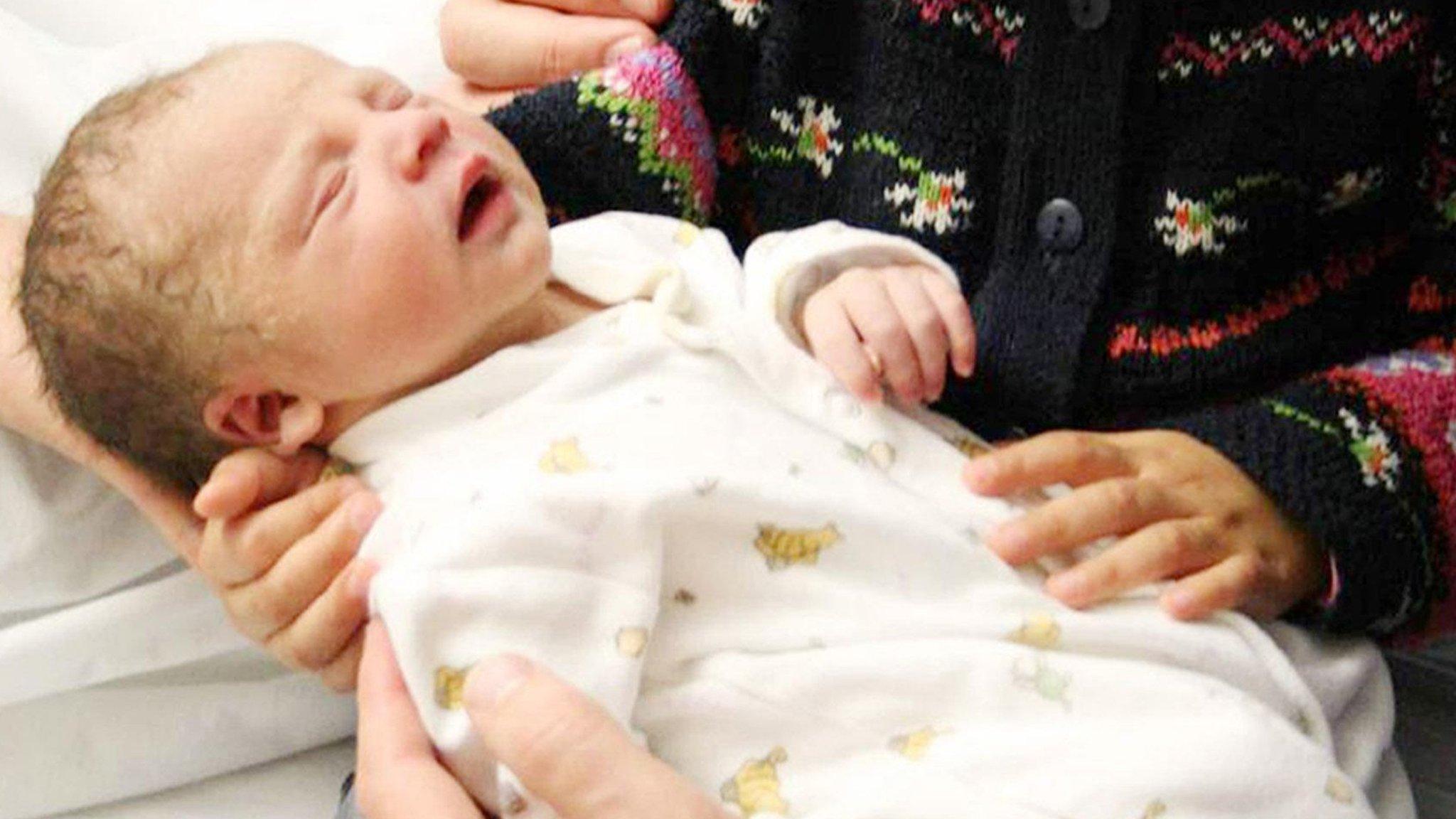Furness Hospital baby deaths: Kirkup Report 'vindicates' families
- Published
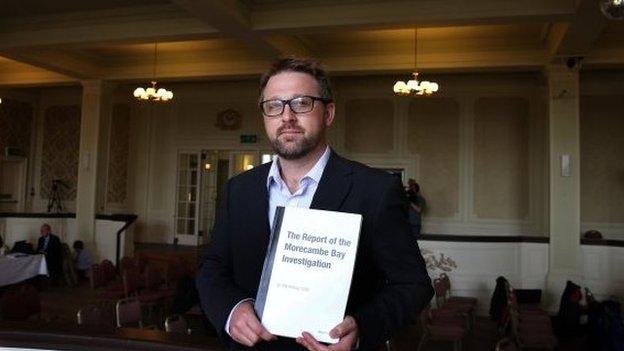
James Titcombe said he felt vindicated by the Kirkup report
Families who fought for the investigation into baby deaths at Furness General Hospital said they feel vindicated after failures were exposed.
They said it had been a six year battle for the truth.
The newly-published Kirkup report identified 20 failures that led to the deaths of 11 babies and a mother between 2004 and 2013.
James Titcombe said his son Joshua would still be alive now if issues had been dealt with.
Joshua died in 2008, nine days after being born at the hospital run by the Morecambe Bay NHS Foundation Trust.
Mr Titcombe said the report, which called the deaths unnecessary, prompted mixed feelings.

Who was failed at Furness?
Investigators identified 20 cases where families were failed, 19 involving deaths.
In 12 cases the deaths could have been avoided with better care, in the others poor care may have contributed to their deaths, the inquiry said.
In 2004 newborn Elleanor Bennett died from the effects of a shortage of oxygen due to a mismanaged labour.
The investigation carried out was "rudimentary" and protective of the midwife involved.
Between 2006 and 2008 there was a series of further incidents, each was investigated, but so inadequately that the underlying problems went unnoticed.
In 2008, there was a cluster of five serious incidents.
A baby suffered complications shortly after pre-term delivery following poor assessment and care, while a mother died in pregnancy because of the effect of high blood pressure that had been inadequately monitored.
Another mother - Nittaya Hendrickson - died following a series of poor decisions and her baby Chester subsequently died from the effects of shortage of oxygen.
Alex Davey-Brady was stillborn because of a shortage of oxygen in labour, then in October Joshua Titcombe died from an infection after "inadequate" treatment.
After 2008, there were another 10 deaths where there were significant or major failures of care - six could have expected to be prevented with better care.
Nick Triggle, BBC News health correspondent

The father, who has spent six years campaigning for information, said: "I feel sad and angry but also a big sense of relief and vindicated for the battle over the past six years."
He said if basic lessons had been learnt from deaths as early as 2004, his son would still be alive.
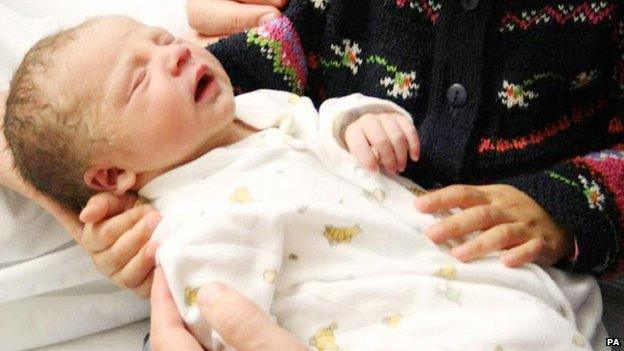
Joshua Titcombe's death at Furness General Hospital prompted a long battle for information by his family
"Until now there hasn't been a proper acceptance of the failures, the scale, the wrong doing," he said.
"They have got to put their hands up and acknowledge the scale of it, it's cost a lot of people their lives."
Simon Davey and Liza Brady have endured a similar struggle for information since their son Alex was stillborn in 2008.
Mr Davey said: "The report has highlighted everything we've been saying.
"We've felt ignored for six-and-a-half years, we finally feel we have been listened to.
"It is there in black and white now and needs to be acted on."
Both families said it was now important the recommendations made by Dr Bill Kirkup were acted upon.
- Published3 March 2015
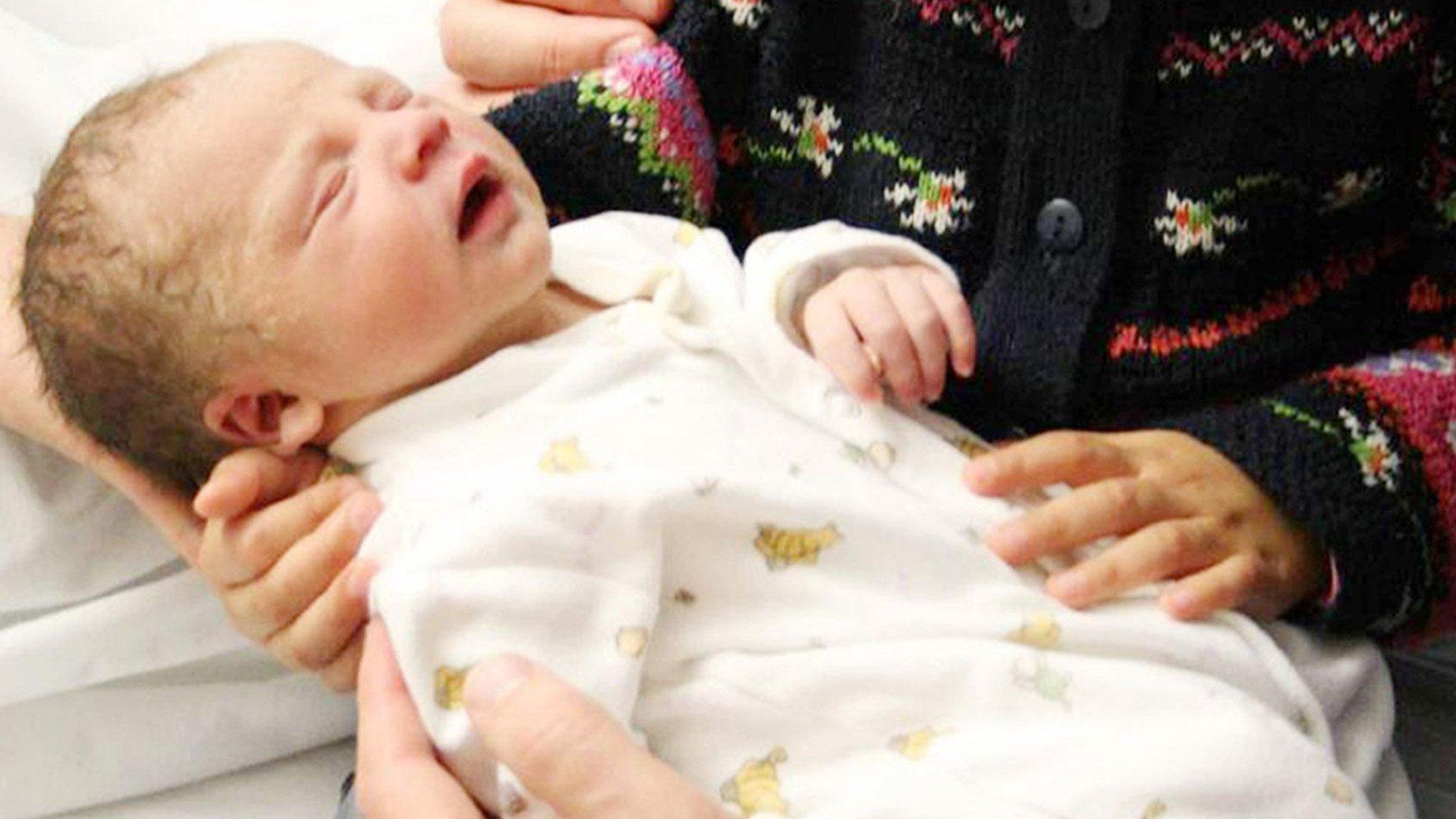
- Published3 March 2015

- Published18 February 2015
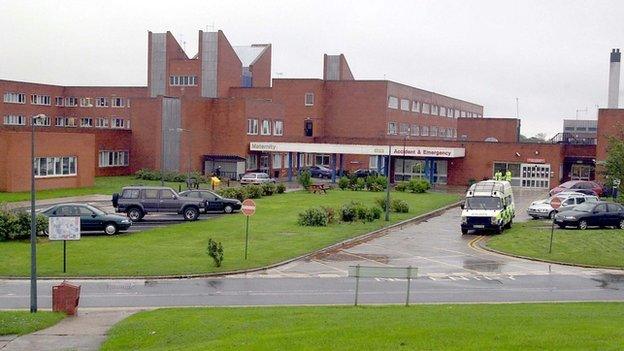
- Published11 December 2013
